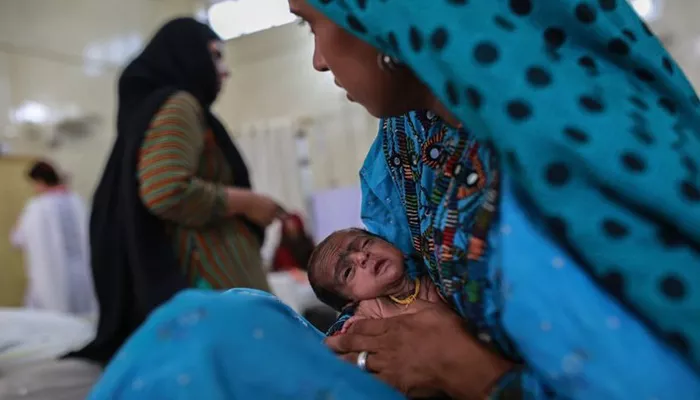Every day in Pakistan, 675 newborns and 27 mothers die from preventable complications, leading to over 246,000 newborn and nearly 11,000 maternal deaths annually, according to alarming statistics from the United Nations (UN) and World Health Organization (WHO). On World Health Day 2025, the UN and WHO urged urgent investment in maternal and newborn health, emphasizing that inaction threatens Pakistan’s future.
Most maternal and newborn deaths are caused by treatable conditions like postpartum hemorrhage, infections, and unsafe abortions. Pakistan is among the top four countries, alongside Nigeria, DR Congo, and India, that accounted for 47% of the global maternal deaths in 2023. WHO Representative in Pakistan, Dr. Dapeng Luo, emphasized the importance of investing in maternal and newborn health, highlighting the high returns on such investments.
Despite some progress in reducing maternal mortality, with a drop from 276 deaths per 100,000 live births in 2006 to 155 in 2024, Pakistan is still far from meeting global targets. Neonatal mortality has also decreased, but progress is uneven, particularly in rural and conflict-affected areas. Issues like anaemia and lack of access to antenatal care persist, and the Covid-19 pandemic further disrupted maternal health services.
The UN report stresses that many maternal and newborn deaths are preventable through investments in midwifery, family planning, and women’s education. The pandemic has exacerbated these challenges, with 40,000 additional maternal deaths in 2021 due to Covid-19 and disruptions in maternity services.
The report also highlights the disparities between countries and regions. While sub-Saharan Africa saw significant reductions in maternal mortality, it still accounted for 70% of global maternal deaths in 2023 due to poverty and conflict. Countries in conflict and humanitarian emergencies are particularly vulnerable.
The UN calls for urgent action to address these gaps and ensure that every mother and newborn has the chance to survive and thrive, particularly in fragile and conflict-affected settings. Access to quality maternal care and overall health improvements, including family planning and disease prevention, are critical to reducing maternal and newborn mortality rates.
Related topics:


